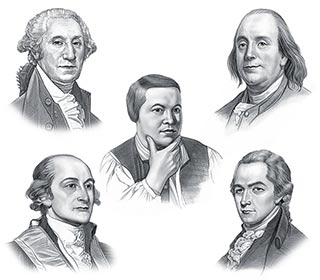Reason for the Conflict at the Battle of Concord
General Thomas Gage, the military governor of Massachusetts, was aware that the agitators and the Patriot Colonists in the Province of Massachusetts Bay were preparing for conflict following the 1773 Boston Tea Party and the passing of the punishing '1774 Intolerable Acts'. Their preparations included the production of arms and munitions and the training of militia, including the Minutemen. On April 14, 1775, General Gage received instructions from the British Secretary of State William Legge, the Earl of Dartmouth, to disarm the rebels and to imprison the leaders of the rebellion. General Thomas Gage therefore sent and advance force of British troops to capture the patriot leaders Samuel Adams and John Hancock who were reportedly staying in the village of Lexington and sent other British troops to Concord to seize the arms and ammunition. The patriot leaders Adams and Hancock escaped, thanks to the warning of Paul Revere. But shots were exchanged at the Battle of Lexington Green which started the American Revolution. The British troops at Lexington marched on to the town of Concord, their combined force totalled 1800 'Redcoats'.
Overview and Summary of the Battle of Concord
The Battle of Concord took place on Wednesday, April 19, 1775 at the town of Concord, Middlesex County, Massachusetts. The news of Lexington spread quickly and the militia started to gather in large numbers. When the British reached Concord, the soldiers began searching premises and private houses for firearms and started to set fire to homes. The patriots had received news of the British plans and had already moved their cache of munitions to other towns. There was some fighting and the tired British started on their homeward march back to Boston. Militiamen advanced on the three British companies, and took control of North Bridge, which led to the town of Concord.
The fighting began in earnest. Major Buttrick, in the militia, gave the order for the militia to fire on the British. The colonial forces totalled nearly 4000 men. The militia outnumbered the British 2 to 1. They took advantage of the surrounding countryside - behind every wall, every building, trees and every bit of rising ground were militiamen. The British sustained considerable casualties which would have been worse had they not been out of range of the militiamen's muskets. The British made their way back to Boston through Lexington where the fighting started again. The battle continued until the British survivors reached a place of safety under the guns of the warships anchored off Charlestown, a neighborhood of Boston. The Americans camped for the night at Cambridge and began the siege of Boston and the Battle of Fort Ticonderoga.
The Importance and Significance of the Battle of Concord
Significance of the Battle of Concord: The significance of the conflict was that victory against the British was unexpected and provided the Colonists with the confidence and belief in their ability to win further victories. The Battle of Concord was a great propaganda victory for the colonists.
